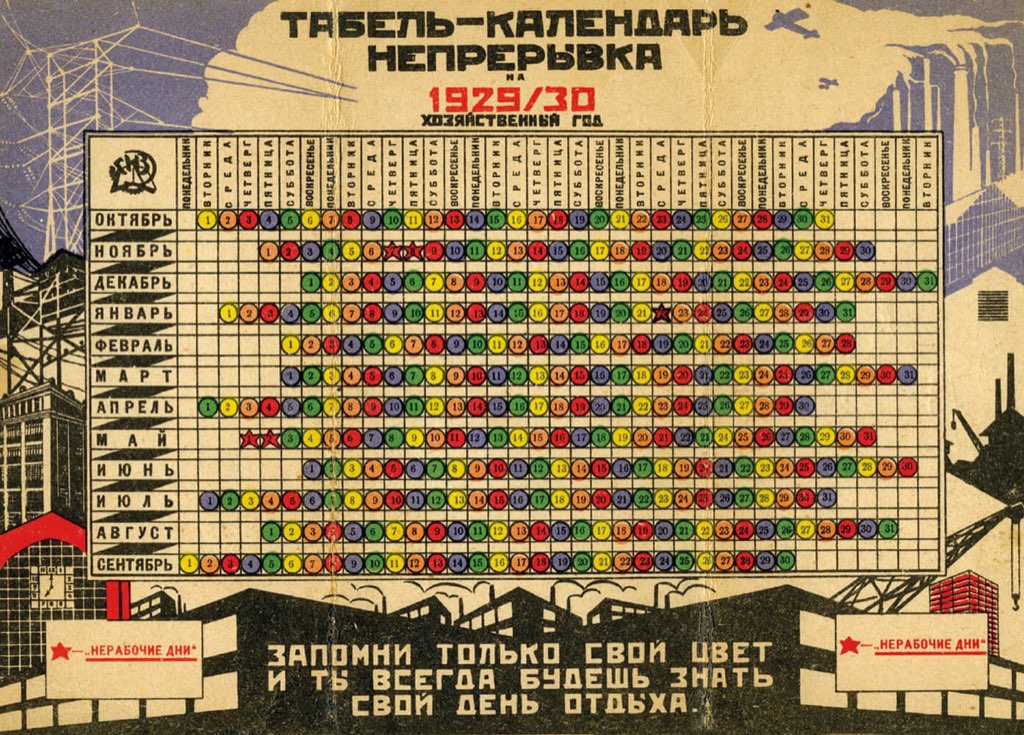I have more than a passing interesting in calendars, and especially in calendars that break outside the norm, so Calendar Collective is a fragrant flower to my calendar-loving honeybee brain:
Calendar Collective is a living archive of alternate calendars. It is an ongoing investigation for collecting, cataloguing and publishing calendars that are little-known to our world. We use openly contributed voicemails as are our unique research material. The archive offers an uncommon collection of calendars traced through these unwritten and slightly incongruous fragments.
My favourite in the archive is an artifact of the late 1920s Soviet experiments with a ”continuous production” — непрерывка — work calendar:
A decree of 24 September modified the proposal by replacing the sevenday cycle with a five day one. The workers were issued with coloured slips of paper to tell them which day to take off: yellow, orange, red, purple, and green. They were to observe a day off on the day that fell on their colour.
This calendar, reproduced from a 2016 post from Tony Wood, shows this colour-coding system: the months are along the left side, starting with October (октябрь), and the days of the week are along the top, starting with Monday (Понедельник). So if you were I the purple worker squad, you got Friday, October 4 as your day off, and then Wednesday, October 8, and so on, working 4-days-on, 1-day-off (distracting tangent):

The problem with the system, according to a letter published in Pravda in 1929 and reprinted by Wood:
What is there for us to do at home if our wives are in the factory, our children at school, and nobody can visit us, so that there is nothing left but to go to a State tearoom? What sort of a life is it if we are to rest in shifts and not together as a whole proletariat? It is no holiday if you have to have it alone.
In other words: there’s benefit to everyone having the same day off because it means we can hang out. What sort of life is it, indeed, if we are to rest in shifts.
Regardless, the calendar itself is a thing of beauty.
(This was a rabbit hole I fell into by following a link in the SPACE10 newsletter, which is excellent).
 I am
I am
Comments
> In other words: there’s
> In other words: there’s benefit to everyone having the same day off because it means we can hang out. What sort of life is it, indeed, if we are to rest in shifts.
Something to keep in mind if you do your grocery shopping on a Saturday or Sunday.
(When I lived in Germany - where most stores still are closed on Sunday, though capitalism is trying to chip away at that - one of the nice things was knowing that I wouldn't be able to do any shopping chores on Sunday, even if I wanted to. Mind you, I still did like having trains running on Sunday. It'd be hard to have a modern society without at least some people resting in shifts.)
Add new comment